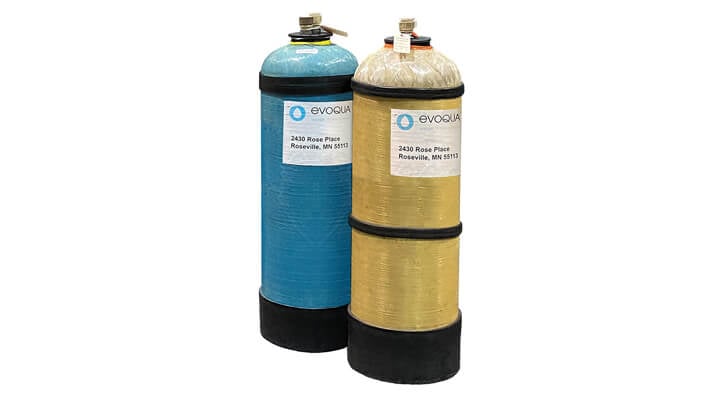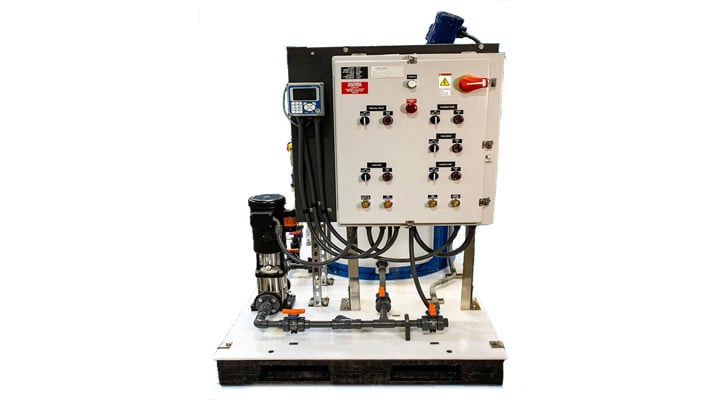Challenge
Evoqua Water Technologies was contacted by a hexavalent chrome plating customer for assistance in reducing water demand at their facility. The customer manufactures chrome plated parts for the aerospace industry and produces many wastewater streams that contribute to high waste disposal costs and difficult-to-meet wastewater discharge requirements. The customer was seeking a solution that would allow an increase in production while avoiding a) expanding the existing make-up water system used to condition city water and b) additional investment in increasing the flow of the existing wastewater treatment precipitation system and the associated discharge permit revision.
Solution
Evoqua recommended wastewater ion exchange (WWIX) service to treat and recover the chromium-contaminated wastewater. WWIX service utilizes service-based vessels of ion exchange resins and other adsorptive media selected to remove specific ionic contaminants from groundwater, industrial wastewater and process water for recycle. USDOT-approved vessels containing the selected WWIX media are used to treat the water until the media contaminant-capacity is reached. Once exhausted, the spent vessels are removed and replaced with fresh, DOT-compliant vessels and returned to service. Exhausted vessels are returned to Evoqua’s fully permitted processing facility where the contaminants are removed from the media and both the contaminants and media are recovered.
Evoqua provided a turn-key wastewater treatment system with WWIX resin vessels, an Aquasaver™ pump skid, filters and interconnecting hoses. The system pressurizes the wastewater, removes particulate, adjusts the wastewater pH and removes dissolved metals ultimately producing clean water that is recycled back to the process rinses. The WWIX vessels operate in a lead-lag configuration to maximize the operating capacity of the WWIX resin. When the lead vessel is exhausted, it is removed from service and replaced with the lag vessel while a fresh vessel is placed in the lag position. The WWIX treatment system recovers rinse water from the plating process, producing high-quality, clean rinsewater and reduces demand on both the existing make-up water and wastewater treatment systems by over 50%. Recovering the plating process wastewater also eliminated the need to expand the existing water treatment systems and avoided a revision of the facility wastewater discharge permit.
Evoqua WWIX systems can expand to larger vessels as the customer operation grows or can simply be exchanged more frequently as the production volume is increased. Evoqua’s RCRA-licensed processing facility handles non-regulated wastes as well as hazardous wastes, such as F006-listed hazardous wastes, ultimately recovering treatment residuals to minimize the customer’s liability.
Results
Evoqua provided a turnkey wastewater treatment and recycling system that minimized the customer’s investment in capital equipment and reduces water demand at the facility. Coupled with off-site regeneration at Evoqua’s RCRA-licensed processing facility, this provides the customer with an advantage of simple system operation and maintenance and compliance with all RCRA regulations while ultimately recovering water and metals from the process.

